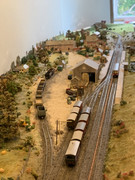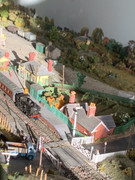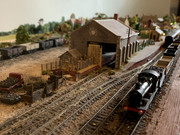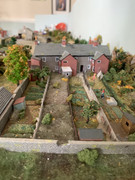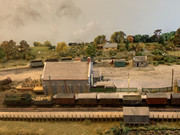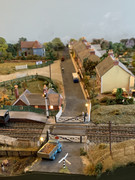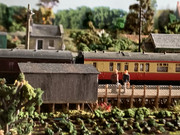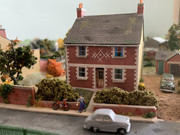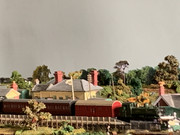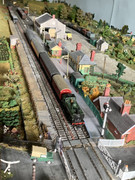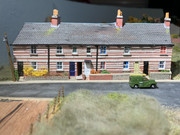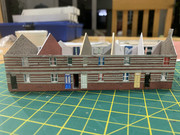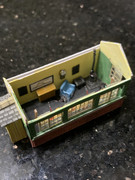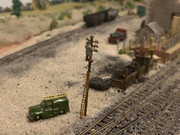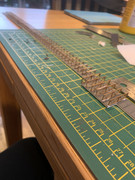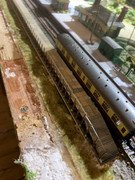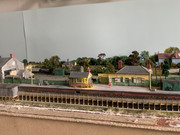I am new to this forum, and thus may not be posting in the right place. since lockdown i have been modelling-inspired by some local history research- the now long-gone station and environs at Eynsham, 3 miles from where I live. This is c. halfway between Oxford and Witney on the old Fairford branch. Before you say 'oh no, not another GWR branchline', this is different! The old Witney railway never quite conformed: the stations between Oxford and Witney were always painted green and cream, for example. Today nothing is left at Eynsham, which was the largest station between Oxford and Witney, with a grand stone goods shed and a large wooden station building from the mid 19th century, save the name 'Station Road' and the village by-pass following the track route between the now demolish roadbridge and the long gone level crossing (both now represented by roundabouts today). Passenger traffic ceased in 1962 and goods traffic, a few trains a week, in 1982, afterwhich the line was lifted. Old concrete fence posts remain along some stretches of fields and footpaths, but that is about it.
I was inspired by some local history research during lockdown, and walking the route, which has been the discussion of a possible Witney-Oxford tramway to relieve the horribly congested A40. the is a website dedicated to the Fairford branch, and three books, but few photographs publically avaliable. Gradually, via a village facebook site, photos have been sent to me (including some taken in 1958 from a helicopter!), while scale building plans in two of the books were a boon.
The model so far is 3.4m x60cm, portable in three sections, N Gauge and DCC. a fiddle yard behind the backscene allows me toi run it both as end to end or round and round. all scenery and buildings are scratchbuilt to scale (including the houses in Station Road, which still exist, track is Peco Code 55, rolling study etc are various including Fraish panniers, a Union Mills Collett and a railcar- these were the common locos on the line.
I am including some pics. I have been aiming to match the qwuality of the well-known Vale of Oxbury model, described by many as the best N gauge layout. I have strived for a line in a landscape, rather than a railway with a bit fo scenery. The landscpae is largely flat as this is the flat Thames valley, with some limited relef in the west. There is still alot of detailing going on and work at the east end (the roadbridge end was added on a few months ago, and I still have a pub to build.
I have been sharing the mdoel and its progress with the local Eynsham Facebook history site, with much enthusiasm garnered. I though I would now risk sharing with the modelling community. I would add that I modelled in 00 about 20 years ago, and sometimes in my youth, but this is a first effort for many many years. Any thoughts etc welcome. I am happy to share more pics of the construction process, building interiors etc , and also higher quality pics (these are all from my iphone). Many thanks!
